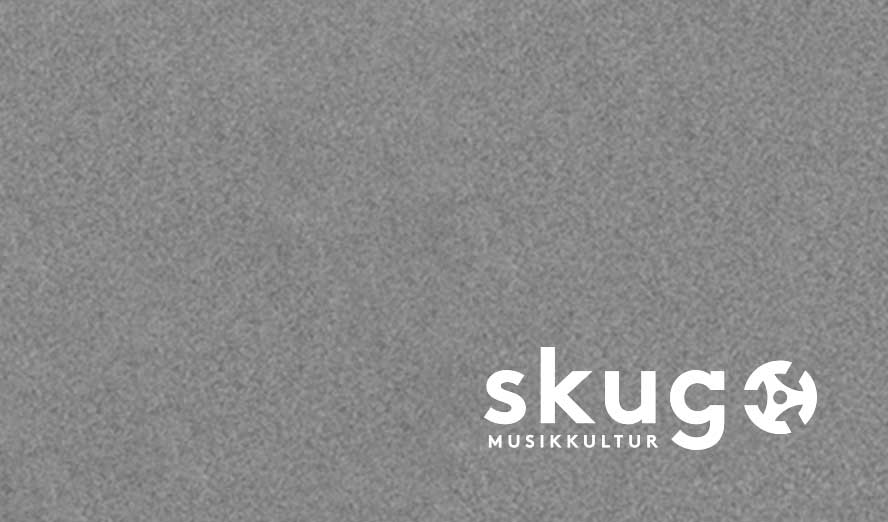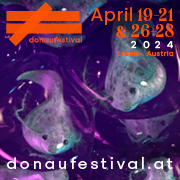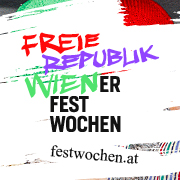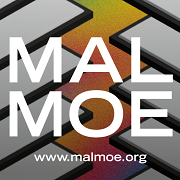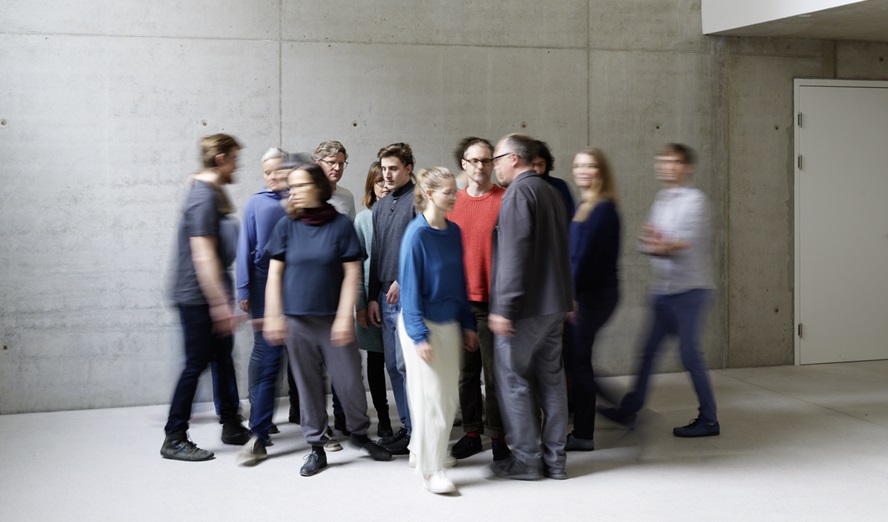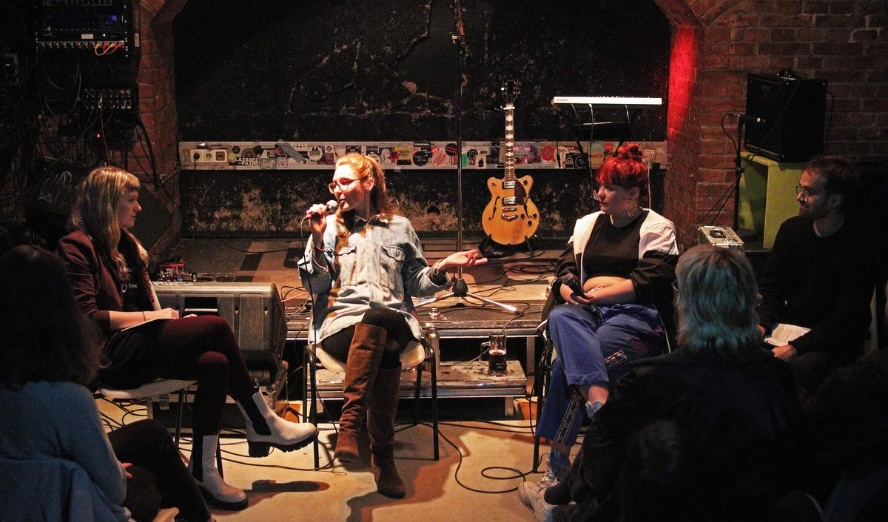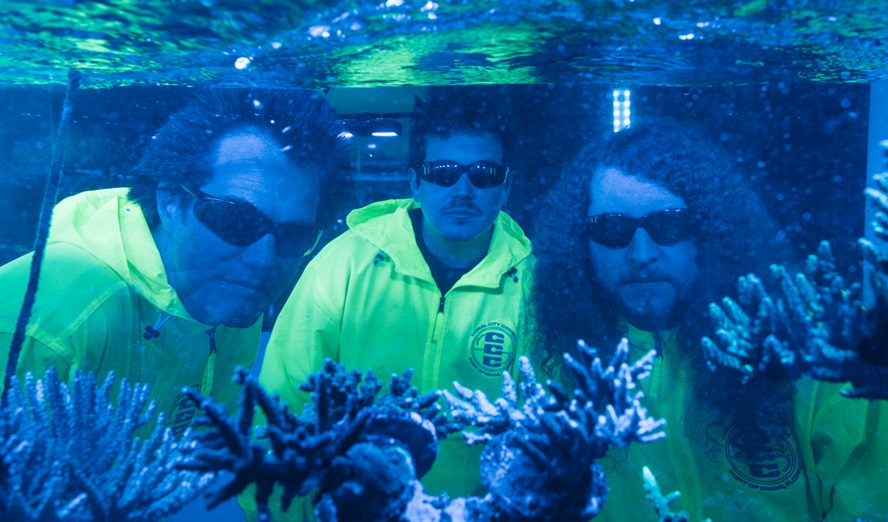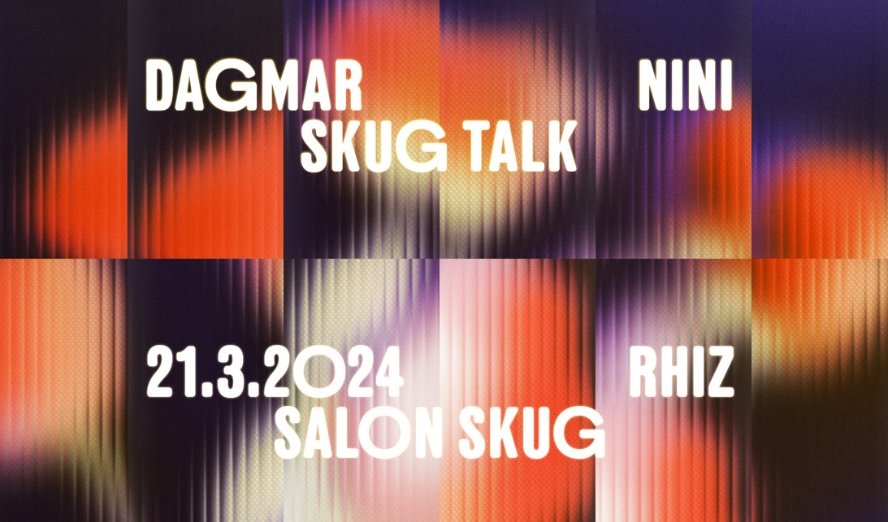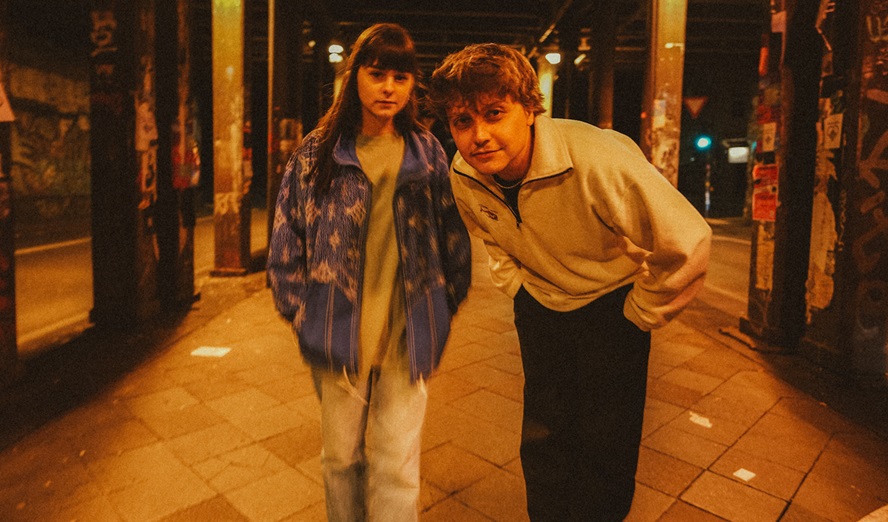Viennese electronic music basically grew out of two different trends: experimental guitar rock and the techno movement. By the mid-1990s, a diverse network of subscenes had emerged: electroacoustic art music, electronic noise, electronic jazz, techno/house, HipHop, downbeat, and electronic pop. In 1995, Peter Rantasa, now director of mica, Music Information Center Austria, initiated phonoTAKTIK, the first festival for electronic music in Austria in collaboration with Christof Kurzmann. During this event, musicians familiarized an international audience with a plethora of sounds. Established artists from abroad attended the festival and exchanged ideas with local innovators. Due to lack of funds, phonoTAKTIK took a four-year hiatus, but was staged again in 1999. This year, it will take place in April in Vienna and New York and will explore the social construction of technology.
Many of the pioneers in electronic music were independent rock musicians before they ventured into new terrain. Since they knew that international record companies would not invest in Austrian acts, they teamed up with friends and founded independent labels to minimize equipment costs. When digitalization brought on a change of paradigms in music production, their access to production tools became even easier.
In 1991 Alois Huber and Franz Pomassl founded Laton, Austria\’s first label for electronic music. Andi Orel and Constantin Peyfuss followed suit in 1992 and established Abuse Industries, a pioneer label featuring Erdem Tunakan and his friends. The year 1993 was marked by a first big wave of label foundations: Mainframe, Cheap, XXX, G-Stone, Duck Squad, Red Tide, and Gelb.Wien developed their own, distinctive sound and only released recordings that were in line with their philosophy. Since they hardly faced any competition, they had nothing to lose with their risky experiments. Not expecting commercial success, they did not let marketing strategies influence their artistic decisions. As music stores in Vienna hardly imported any techno recordings, the local public slowly started to warm to these independent labels. Vienna Electronica ultimately became such a strong movement because a broad public did not discover its productions until later, when the labels had already established an extensive catalog of recordings.
Like many of their friends, Pulsinger & Tunakan made a name for themselves as DJs before founding their own label, Cheap, in 1993. Over the years, they have released experimental, groovy, and sometimes trashy recordings, all of which catch the listener by surprise. Pulsinger & Tunakan often use pseudonyms to avoid commitment to any particular style. They were followed by Maria and »Harti« Hartweger\’s label Pomelo. Werner Geier and Rodney Hunter\’s label uptight produced Leena Conquest\’s top hit »Boundaries.«
DJ Pure, one of the most important pioneers, set up his Loop label. It is due to his efforts that a small, but booming techno scene flourished in Vienna from the mid-1990s onwards. Apart from Loop, the Space Jungle event at the club U4 became one of the cornerstones of the Viennese techno movement. Excellent DJs such as Glow and Dan Lodig played sophisticated sets during the Space Jungle Club night. The mid-1990s were the heyday of the »old school« of Vienna Electronica, i.e. ground-breakers such as the Mainframe and Pomelo producers, Pulsinger & Tunakan, DJ Pure, DJ Tina 303, Christopher Just, and DJ Glow.
Sabotage Communications, a platform for artistic interventions founded by actionist artist Robert Jelinek, also started its own label in the mid-1990s. Through its release policies, Sabotage contributed to a diversification in Viennese electronic music. After the first enthusiasm about techno had ebbed, the Viennese scene started to explore new territories. Ramon Bauer and Peter Meininger, for example, became increasingly bored with techno and founded the Mego label. Bauer & Meininger represent the most experimental trend in Viennese electronic music. In collaboration with the English artist Peter »Pita« Rehberg, they are constantly on the lookout for ambient sounds and noises. Since 1995, they have collected sounds from refrigerators, computer hard drives, and electric household appliances. With their releases, they ask their audience, »What does the instrument itself tell us? Which frequencies make our stomachs tingle and our lungs prickle?« It is no surprise that Mego became the home label of Fennesz, the star of Viennese experimental electronic music. Very early on in the Internet age, i.e. in 1996, Mego set up an online record store. Bauer & Meininger thus were able to access international markets and secure the label\’s economic survival. Today, only ten percent of all Mego releases are sold in Austria. Australia and Japan are its major markets.
Aided by its excellent international contacts through the Internet, Mego helped organize the first phonoTAKTIK festival in 1995. The festival was a big success and established Vienna as one of the leaders in new electronic music. The city\’s musical underground movement was on a roll. Various independent labels were founded, and all those that had not yet released very many records started to get in gear. »Bands« were founded, new projects developed. The output was enormous. All this happened far off the mainstream and independent of the big record companies. At that point in time, different scenes crystallized. Artists went down various career paths: Kruder & Dorfmeister landed a stellar success with their debut album »G-Stoned« (1993), one of the best TripHop recordings of all times. Kruder & Dorfmeister subsequently became sought after all over the world for their remixes and are now famous for their clean, lounge-oriented sound. In 1997, they released their remix compilation in the »DJ-Kicks« series of the German !K7 label.
During the same year, Sabotage Communications celebrated its fifth anniversary with the »FIVE« compilation. This album documents the diversity and quality that defines Vienna Electronica. Big record companies followed Sabotage\’s example by releasing a whole series of compilations within a short period of time. However, they were not able to achieve the success they had envisaged because these compilations only featured newcomers and hangers-on. With their small, independent labels, the pioneers had already created their own platforms.
In the meantime, the hype about Vienna Electronica has calmed down. While Vienna still enjoys an excellent reputation, the pioneers who contributed to creative innovations dominate the scene again. These days, a new generation is also coming to the fore. While some of the better-known musicians have established themselves internationally, others have retreated to the background or fallen out of sight. Supported by the older generation, young talented artists are now staking their claim. This development is also reflected in the history of phonoTAKTIK: In 1999, the project FON received the Max Brand Prize. In 2002, phonoTAKTIK will again introduce little-known acts from Vienna.
Is there a typical Viennese sound? Even though most local artists deny its existence, connoisseurs from abroad insist that they can detect it. Patrick Pulsinger, who stands absolutely alone with his opinion, gives the following explanation: »I think that the Viennese sound is a matter of feeling. Vienna is a slower city and people take things in more. It is the sound of the city. The artists\‘ environment influences their production. And Vienna has this slightly melancholic, languid, and sometimes poor sound.«
If we were to define a Viennese sound at all, it would have to encompass a wide variety of tone colors and rhythms. This diversity constitutes the strength of Vienna Electronica.
